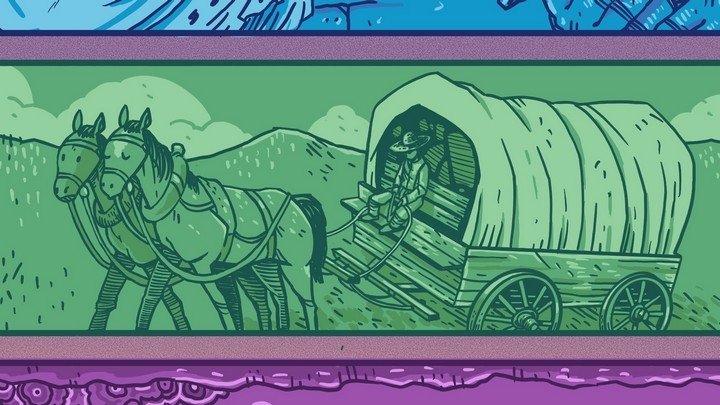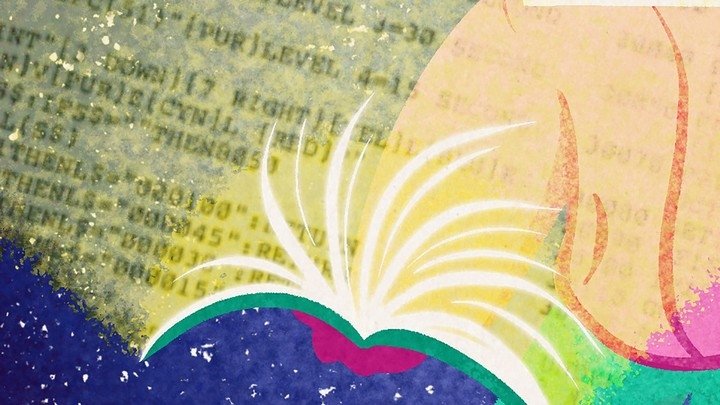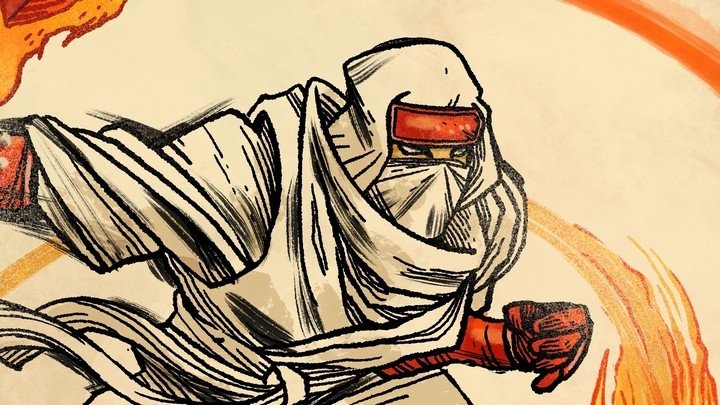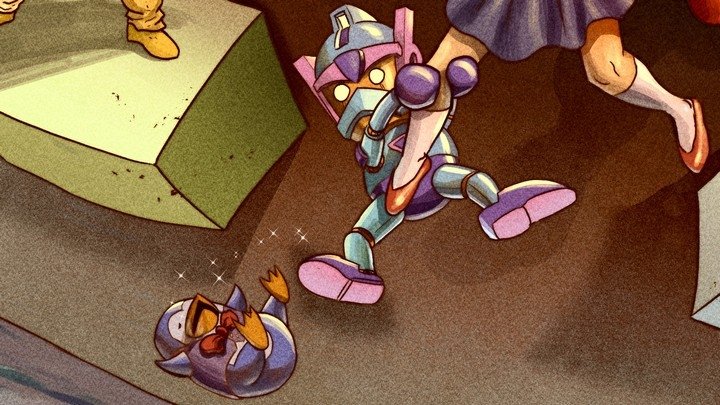Disney Afternoon Collection: The Retronauts review

The announcement of Mega Man Legacy Collection 2 yesterday reminded that I've never quite understood the enormous amount of hate gamers directed at the first Legacy Collection a couple of years ago. Featuring six games for a tidy price — a fact specifically highlighted by the 3DS version, whose physical release clocked in at $10 less than buying the six included titles a la carte on Virtual Console — it made for a pretty respectable deal. On top of that, the Legacy Collection offered hands-down the best and most faithful rendition of those six games that has been available in a commercial product since the original carts; the only productions that even came close were those PlayStation remakes in Japan, which sold for $30 apiece and were reprogrammed rather than emulated. Despite a few small glitches here and there, the Legacy Collection absolutely blew away previous offerings, from the deeply flawed Mega Man Anniversary Collection to Nintendo's own Virtual Console. Given the historic stature of those games and their glaring lack of a proper reissue for so many years, the Legacy Collection should have been embraced with open arms. Instead, it was greeted with anger, intense criticism, and general hatred.As far as I can tell, all that rage had very little to do with the Legacy Collection itself, or with the quality of the product. Instead, it appears to have resulted from resentment at Capcom's apparent abandonment of the Mega Man franchise in the wake of Keiji Inafune's departure from the company, combined with a desire for games not already available via Virtual Console. The Legacy Collection's announcement was greeted with anger, with every minor flaw in the collection inflated by the internet collective to crisis-level disaster.
My suspicions about hangups surrounding the Legacy Collection look to have been corroborated by its new follow-up, The Disney Afternoon Collection. Featuring the same technology (interpreted NES games) from the same developer (Digital Eclipse) and publisher (Capcom), the Afternoon Collection has been received with almost universal enthusiasm. The biggest complaint I've seen directed toward it has been a lot of perfectly understandable confusion about the collection's failure to appear on a single Nintendo platform despite having its roots on Nintendo Entertainment System. Otherwise, though, it's been more or less glowing reviews all the way down.

And rightly so. The Afternoon Collection is an excellent compilation of some pretty good games. The games feel spot-on, with no significant visual or audio errors that I can spot. The action has a crisp, lag-free sensation. You also get a pretty healthy little museum of archival art and trivia as part of the deal. (My favorite nugget: The unused DuckTales illustration that was clearly penned by Inafune, who got his start in the biz creating the packaging and manual illustrations for the Famicom Mega Man games.)
The Afternoon Collection includes a few improvements over the Legacy Collection. Digital Eclipse appears to have cleaned up the handful of glitches that showed up in the previous anthology. You also get a handful of presentation options, including borders, true-pixel scaling, and even fake scanlines (which can help break up the chunky-pixel visuals on a huge screen). Even more welcome: They've integrated a brilliant rewind feature that comes in handy during some of the games' more hateful sequences. I mean, yes, these are Disney creations and are entirely kid friendly, but they're still 8-bit action games... so you do occasionally come across moments that make you feel like the designers had some sort of deep grudge against you personally. The mine cart sequences in DuckTales in particular benefit from this emulator-like rewind option, as do the bosses in Darkwing Duck. But I stress the word option; if you hold to a purist perspective (or are one of those snobs who uses the phrase git good without irony), you don't have to make use of the rewind.
Other than these tweaks, though, the only thing the Afternoon Collection really offers over Legacy Collection is the fact that you can't otherwise buy the six games compiled here without shelling out for the original NES carts... the cheapest of which costs about as much as the entire Afternoon Collection, and the most expensive of which runs several hundred dollars. The Disney connection has prevented these NES games from appearing on archival releases or services until now, due to rights issues and licensing costs; this release amends that. It's pretty unusual to see vintage games based on major licenses reissued years later, and the Afternoon Collection is genuinely special in that regard.

This new collection is on par, quality-wise, with the Mega Man anthology — a good thing, despite some internet grumbling that would suggest otherwise. And on a personal level, The Disney Afternoon Collection has provided me an opportunity for me to become acquainted with games I have only passing familiarity with. The only one of the titles gathered here that I played during the NES era was the original Rescue Rangers, which did a reasonable job of providing cooperative action filler for me and my best NES-loving friend until the next Contra sequel arrived. Since I lack a personal connection to the material here, it became more of a historical artifact for me (as opposed to the warm journey into nostalgia that the Mega Man set was).
For fans who cut their teeth on these classics, the Afternoon Collection does them justice. For others like me, who who never played some of the deeper cuts in Capcom's Disney/NES library, it's instead a great opportunity to get to know them better. These games have a certain universal quality to them; despite being the products of different development teams, they all hail from Capcom during the company's time at the top of the NES third-party heap. Visually, musically, and mechanically, NES owners could bank on the certainty that the Capcom name guaranteed a certain unflagging standard of production excellence. These games bear that out... well, mostly.

DuckTales is by far the best-known title on this compilation. Not only was it tied to the biggest of Disney's afternoon cartoons — big enough to inspire its own motion picture adaptation! — it's also the one game here to ever have been remade beyond the 8-bit era (courtesy of WayForward Technologies). While DuckTales Remastered demonstrated an enormous amount of love and respect for the source material and its property, it always felt like WayForward got a little lost in their own fandom for the originals. Remastered wandered into the weeds to become bogged down with entirely too many intrusive cut scenes. Yes, it's marvelous that the original cartoon cast recorded new dialogue for the game, but all that mandatory voiced text disrupted the flow of what should be a zippy, fast-paced platformer. Revisiting the no-frills NES version serves as a gentle reminder that a snappy vintage action game definitely works best when the pacing isn't all jacked up by excessive conversation.
Another reason people love DuckTales for NES so much: Its unique play mechanics. It wouldn't make sense for elderly Scrooge McDuck to be the violent brawling type or to run around with a gun, so instead the game turns his cane into a sort of pogo stick to allow him to take out enemies by hopping on their heads. Sure, there's a bit of Super Mario Bros. to that concept, but the inherent springiness of Scrooge's cane gives DuckTales a personality all its own; you bound around the screen, bopping enemies, safely passing over dangerous surfaces, revealing hidden treasures, and extending the range of Scrooge's leaps with strategic bounces off bad guys. And while Scrooge does have the ability to swing his cane like a golf club, this has no use as a direct attack against monsters; it's strictly used for whacking inanimate objects... though some of those objects can be smacked into projectile status in a pinch.
It's a fun if sometimes unforgiving game, filled with fan service and classic cartoon and comic references. The game's structure is unique, too: You can freely select from a number of different stages in any order, with only a handful of gates to progression within, and your ultimate goal is not simply to beat the game but rather to do so with the greatest possible amount of treasure in Scrooge's vault. After all, it wouldn't do for Scrooge to save the world. No, he's all about avarice and grasping wealth, and DuckTales holds true to that characterization.

Its sequel — 1992's DuckTales 2 — offers more of the same in general, but it also includes some improvements. It looks nicer, as you'd expect for a game produced several years later, but at the same time it simplifies the original's slightly clunky pogo-cane control scheme. This makes for an even breezier play experience, elevating memorable action game design to near-perfection. Unlike the first DuckTales, the sequel has never been remade, and its late release and relative scarcity versus the original (which launched at the NES's peak rather than in its twilight era) make it an awfully pricey pick-up nowadays. Having it available on an inexpensive collection like this is a real boon for NES and Disney fans alike.
The Rescue Rangers duology demonstrates a similar relationship between the two games: The second one refines the ideas and presentation of the first, but it doesn't really change up the concept. Which is fine, really. Nintendo pretty much nailed it right out of the gate.
Based on the cartoon by the same name, Rescue Rangers and it sequel star Disney's two chipmunk characters (Chip and Dale, no relationship to the exotic dancers) in an adventure scaled to their diminutive height. As always, there's a certain charm about playing as little characters in a gigantic world; the platforming hazards here involve things like water taps, kitchen range burners, science lab flasks, and library books. Sure, you're doing the same things you would in any platformer — running, jumping over obstacles, chucking projectiles at enemies — but the change in visual context adds a welcome twist of novelty.
However, what really sells the Rescue Rangers titles, both then and now, is their cooperative play. As a solo experience, the games are perfectly decent; play with a friend, however, and the games gain far more substance and depth. Everything about the game (including managing on-screen space, sharing the limited number of projectile weapons on a given screen, and strategizing the acquisition of collectibles) becomes either a point of collaboration or a point of contention between the two players. Playing Rescue Rangers cooperatively is by far the best thing the Afternoon Collection has to offer... which, again, makes Capcom's decision not to bring the compilation to Switch all the more baffling, given the fundamental nature of the platform.

Then there's Darkwing Duck, the one game on this collection I really need to spend more time with. It's probably the most substantially Capcom-like title compiled here, sending out major Bionic Commando and Mega Man vibes. It looks and sounds better than any other Disney Afternoon title, and it has a compact platform-shooter feel. Unfortunately, it also has a really off-putting mechanic that causes the protagonist to cling to any horizontal surface he comes into contact with when he jumps — it's like the overhead bars in Contra III, except that you have no control over when and how you stick to them. It happens automatically. As with the pogo mechanic in DuckTales, it forces players to rethink their expectations and reset their gaming instincts. I still haven't quite made the adjustment... but, since I own the game now thanks to this compilation, I can certainly afford to take the time to do so.

The one genuine dud on this collection comes in the form of TailSpin, a shoot-em-up based on an odd cartoon spinoff of The Jungle Book, which saw Baloo the Bear trade in his Mother Nature's recipes in favor of a cargo plane. Capcom built its business on shooters, but this one badly misses the mark thanks to its reliance on a strange and cumbersome central mechanic: Though the action scrolls forward (generally either to the right or downward) automatically, you can reverse it by performing a 180º and turning your plane upside down.
The concept of a horizontal shooter with specifically directional controls was very much a Capcom concept in the ’80s. See Section Z, Forgotten Worlds, or even certain sequences in U.N. Squadron. TailSpin feels very much like an attempt to build on that legacy, but the gimmick in place here (which often sees Baloo flying upside-down) combined with the slightly awkward shooting controls which see you firing at an angle which you change altitude (think Time Pilot rather than Gradius) and you have the formula for failure. I'd like to call this a misunderstood classic, but in fact it's simply a mess.
I can't really hold this one misstep against the Afternoon Collection, though; despite its mediocrity, TailSpin feels like a required inclusion in order to fulfill the package's mandate of collecting all the Capcom-developed games based on Disney's afternoon cartoon lineup from the ’80s. It's no fault of this particular omnibus that one of those games didn't turn out well. And you're still left with five other games ranging from good to excellent, all reproduced with great accuracy and a respectable number of features and bonuses.
Arriving with the Mega Man Legacy Collection fresh in memory, Capcom's Disney Afternoon Collection genuinely feels like at least one corporation is starting to get this whole "preserving game history" thing right. Pulling together multiple high-quality games that aren't otherwise easily available to purchase or play into a single, thoughtfully curated release supplemented with archival material and some welcome quality-of-life features like scanlines and rewinding... it hits a sweet spot of quality versus value, in my opinion. Hopefully this is simply the beginning of a much larger initiative to treat classic games as though they have actual value and merit... though the news that the upcoming second Mega Man collection won't be developed by Digital Eclipse does raise cause for concern. Capcom perfectly lined up its pieces and players in place here; hopefully the change in developers doesn't mean they're starting over from zero again. But even if it turns out to be a fluke, a mere flirtation with a better way of looking at gaming's past, at least we have the Afternoon Collection.




